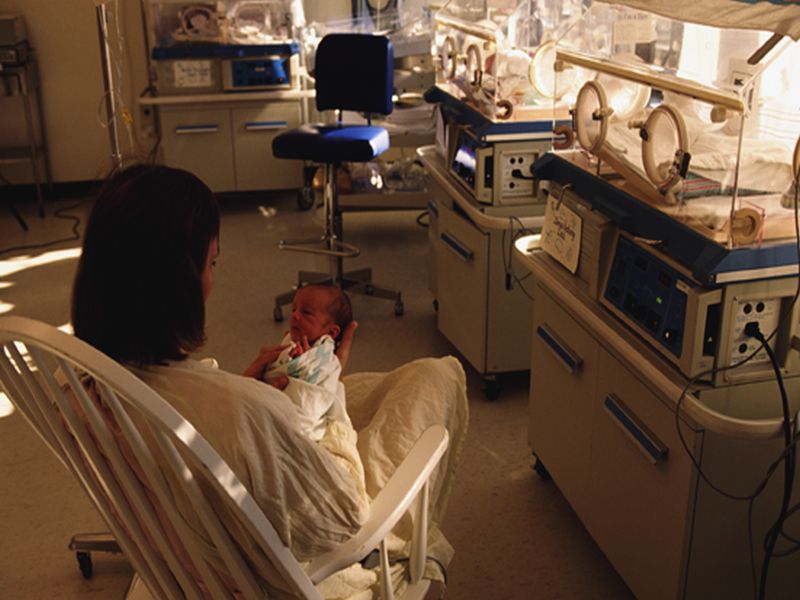

Preemies Bombarded With Noise in First Weeks of Life
But private rooms may not be the solution, study suggestsThursday, February 9, 2017

THURSDAY, Feb. 9, 2017 (HealthDay News) -- Hospitals are noisy -- maybe too noisy for the tiniest patients, a new study suggests.
Researchers found that premature infants in neonatal intensive care units (NICUs) are exposed to potentially harmful noise levels -- sometimes twice the maximum levels recommended by a leading group of U.S. pediatricians.
"Often the noise we measured was coming from medical equipment that is essential to the baby's survival. And this type of equipment is used in NICU units around the world," said study first author Bobbi Pineda. She's an assistant professor of occupational therapy and of pediatrics at Washington University in St. Louis.
On the other hand, preemies in private rooms may miss out on beneficial sounds, such as language and music, that boost early learning, the study found.
The researchers placed sound monitoring devices at the bedsides of 58 premature infants in the NICU at St. Louis Children's Hospital. Twenty-five of the babies were in private rooms.
The researchers found that the average noise level was nearly 59 decibels, with peaks of nearly 87 decibels.
The American Academy of Pediatrics recommends levels no higher than 45 decibels, but that's difficult to achieve in a neonatal intensive care unit, explained Pineda.
The study also found that preemies in private rooms, which are increasingly common in NICUs, have much longer periods of silence than those in ward settings. Private rooms can be too quiet in terms of beneficial sounds, especially if parents can't visit their infants, the researchers said.
"We know that some exposure to sound -- even among preemies -- can be beneficial," Pineda said. "But sounds don't occur alone. When parents talk to their newborns, they often also hold and caress their babies -- all things that help promote healthy development."
Very preterm babies often spend several weeks in neonatal intensive care units. Previous research by Pineda's team found that babies in private rooms in the NCIU had poorer language development at age 2 than babies in open hospital wards.
Pineda and her colleagues have started a study to determine which sounds and other types of stimulation might benefit premature babies in their first few weeks of life.
The study results were published Feb. 8 in the Journal of Pediatrics.
SOURCE: Washington University in St. Louis, news release, Feb. 8, 2017
HealthDay
Copyright (c) 2017 HealthDay. All rights reserved.
News stories are written and provided by HealthDay and do not reflect federal policy, the views of MedlinePlus, the National Library of Medicine, the National Institutes of Health, or the U.S. Department of Health and Human Services.
- More Health News on:
- Noise
- Premature Babies



























.png)












No hay comentarios:
Publicar un comentario